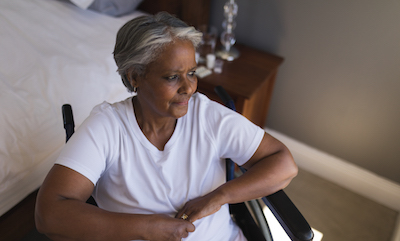Social Determinant Screening Misses Patients at Risk of Utility Shut-Off.
 Researchers at the School of Public Health, the School of Medicine, and Boston Medical Center (BMC) have found that only a fraction of patients at risk of having their utilities shut off were identified through social determinants of health (SDOH) screening.
Researchers at the School of Public Health, the School of Medicine, and Boston Medical Center (BMC) have found that only a fraction of patients at risk of having their utilities shut off were identified through social determinants of health (SDOH) screening.
Published in The Journal of Ambulatory Care Management, the research showed that among BMC patients who received a utility protection letter in 2018, 70 percent were screened for SDOH and only 16 percent screened positive for difficulty paying their utility bills.
“Patients experiencing difficulty paying utility bills may not be detected by systems of care that screen for SDOH, and this is concerning for at-risk populations,” says Karen Lasser, professor of community health sciences at SPH, professor of general internal medicine at MED, a general internist at BMC, and the paper’s senior author. “This research calls for better approaches to identify those needing assistance, to ensure better health outcomes for all patients.”
In January 2018, BMC implemented an electronic health record-based SDOH screening and referral program, which identifies eight domains of potentially unmet SDOH needs: housing and food insecurity, inability to afford medications, utilities or transportation, need for employment or education, and difficulty taking care of children or other family members.
There are several reasons why patients may not be identified for utilities insecurity, according to the researchers. Difficulty paying utility bills may be a seasonal phenomenon—patients screened in warmer months may not identify this need as they would in the winter when heat is a necessity, especially in Boston. Screening for SDOH also takes place at medical appointments. Patients in precarious social circumstances may be less likely to attend visits and therefore may not get screened. Patients may also feel stigmatized by SDOH screening, or may not report difficulty paying for utilities if they are already receiving assistance.
Researchers also analyzed characteristics of adult patients at BMC, a safety-net hospital, who received a utility shut-off protection letter between 2009 and 2018. During the study period, 2,973 adult patients received a utility letter. Looking at the demographics of those receiving the letter, two thirds were women, most were English-speaking, and the average age of the person receiving the letter was 56 years. Two thirds of the patients were non-Hispanic black and 75 percent had government insurance. Overall, these patients had high levels of medical and behavioral health comorbidities.